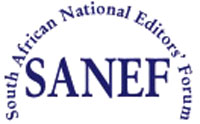
Top stories






More news

Marketing & Media
Ads are coming to AI. Does that really have to be such a bad thing?















The act, as amended, placed onerous pre-publication vetting requirements on any publication that intended to depict or describe sexual conduct that violates or shows disrespect to the human dignity of any person, degrades a person, or constitutes incitement to harm, violence or advocacy of hatred. Mainstream newspapers were exempted.
Counsel for PMSA and SANEF argued that the act defined sexual conduct very broadly, and would require prior screening by the Films and Publications Board of a wide range of mainstream magazines and other publications which might describe such sexual conduct without condoning it.
It would lead to self-censorship, lengthy delays in publication and an unjustifiable incursion on basic rights of freedom of expression, they told the court.
Judge Mathopo agreed, saying that delays in publication caused by pre-screening would erode the currency of news and amount to an unjustifiable limitation on a basic constitutional right.

"It is probably no exaggeration to say that in all probability democracy cannot survive in the absence of freedom of expression... I have no doubt that timeous communication is essential in a democratic system, for absent the right to receive, impart and give expression to information and ideas, there can be no meaningful talk or debates of liberal democracy. Consequently in a democratic society a system of prior restraint based on executive approval will operate as greater deterrent to freedom of expression and cause damage to fundamental democratic rights.
"I have no doubt that there are less restrictive means of protecting children other than the invasion of free speech," he added.
He also concluded that there was no basis in law for treating magazines and mainstream newspapers differently.
SANEF welcomes the judgement, which is an important contribution to the growing body of law that recognizes and protects the centrality of freedom of expression in general and freedom of the press in particular to our democracy.
Download the full Print Media Judgement.